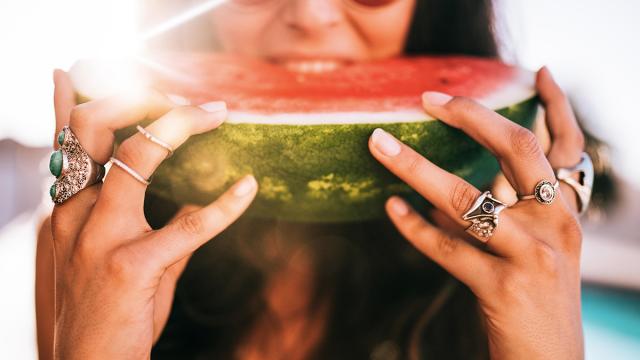You’ve done a great job social distancing, elbow bumping, and washing your hands to avoid the transmission of COVID-19, but what about all the bacteria lurking on your jewellery?
A recent study conducted by pre-owned jewellery brand Est.1897 found that a piece of jewellery can hold up to 428 times more germs than a toilet seat after just one week’s worth of wear.
I’ll give your stomach a minute to process this information.

After swabbing a ring, watch and pair of earrings that had been worn for a week, researchers found 21,000 bacterial growths.
The worst culprit? Rings – with 504 bacterial colonies, one fungus colony and one black mould colony after just one week of wear.
Watches are almost just as bad, with four types of bacteria present upon testing.
“This study has brought some interesting things to light and the results are astounding,” Est.1897’s Ben Jarrett said via 7News. “Although it’s important to keep your jewellery pristine to savour its value, it’s also duly important to regularly scrub and soak your pieces to keep them safe and clean.”

How To Clean Bacteria Off Your Jewellery
Speaking to Rolling Stone, Andrew Brown, CEO of WP Diamonds, said: “start by adding a few drops of mild dish soap to a bowl of warm water to make a cleaning solution.
“Let your ring soak in the cleaning solution for 20 minutes, then follow with a clean and soft toothbrush to gently remove dirt, especially around the back of the piece. Rinse off your jewellery with water and dry it with a soft, lint-free cloth.”
Brown also recommends securing your item in a tea strainer and using the steam wand on an espresso machine for a deep clean. However, there are plenty of portable jewellery cleaners and sanitisers on the market if the DIY option isn’t for you.
When it comes to jewellery with gemstones like diamonds, rubies and sapphires, an expert from Simon G. Jewelry tells Refinery29 you should disinfect them with regular household isopropyl alcohol or hydrogen peroxide.
This rule does not apply, however, to soft stones like opal, kunzites, pearls, tourmalines and emeralds. “Take care with any other kind of stones and use a gentler form of cleaning,” the expert warns.
This article has been updated since its original publication.

Leave a Reply
You must be logged in to post a comment.